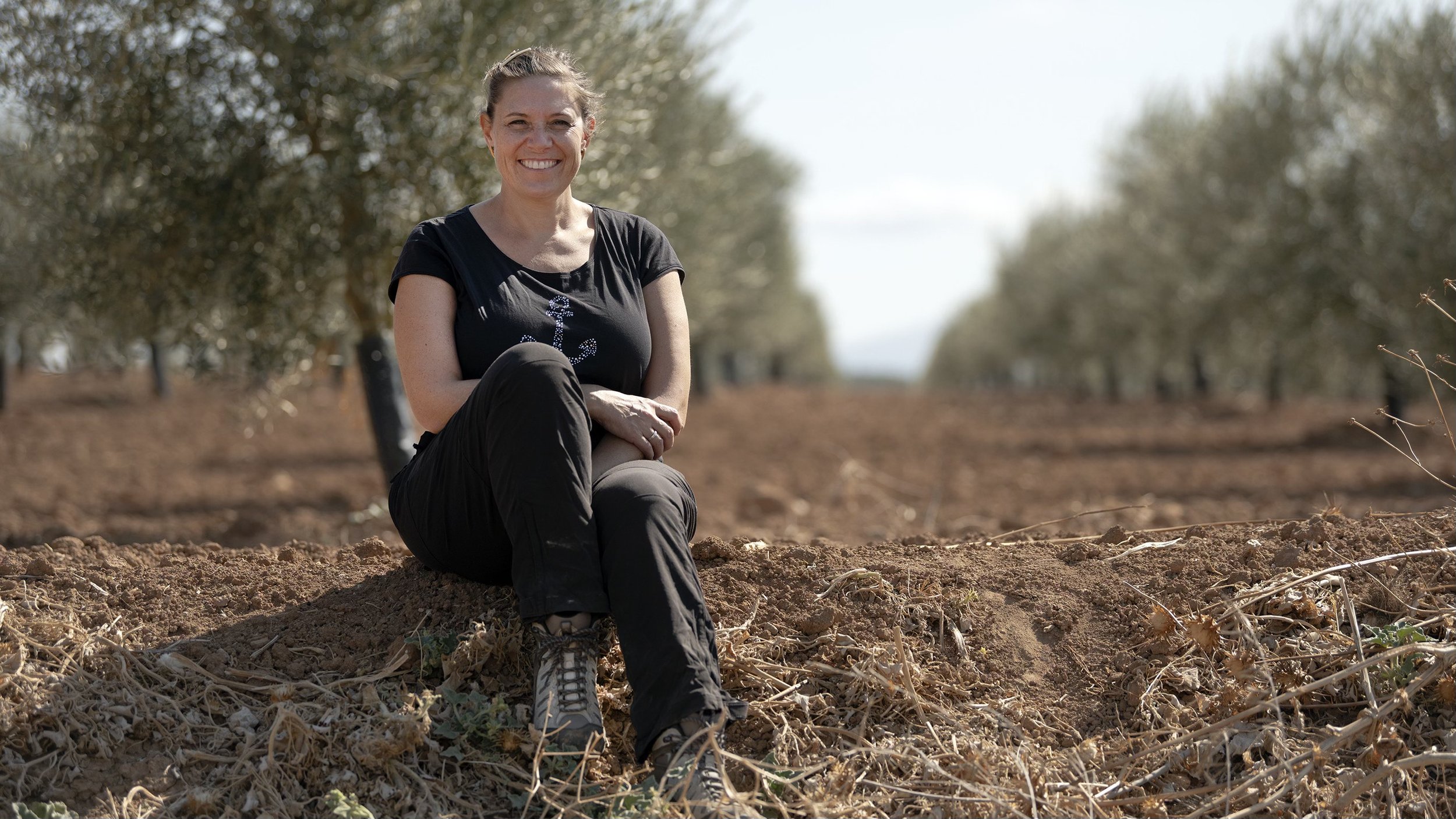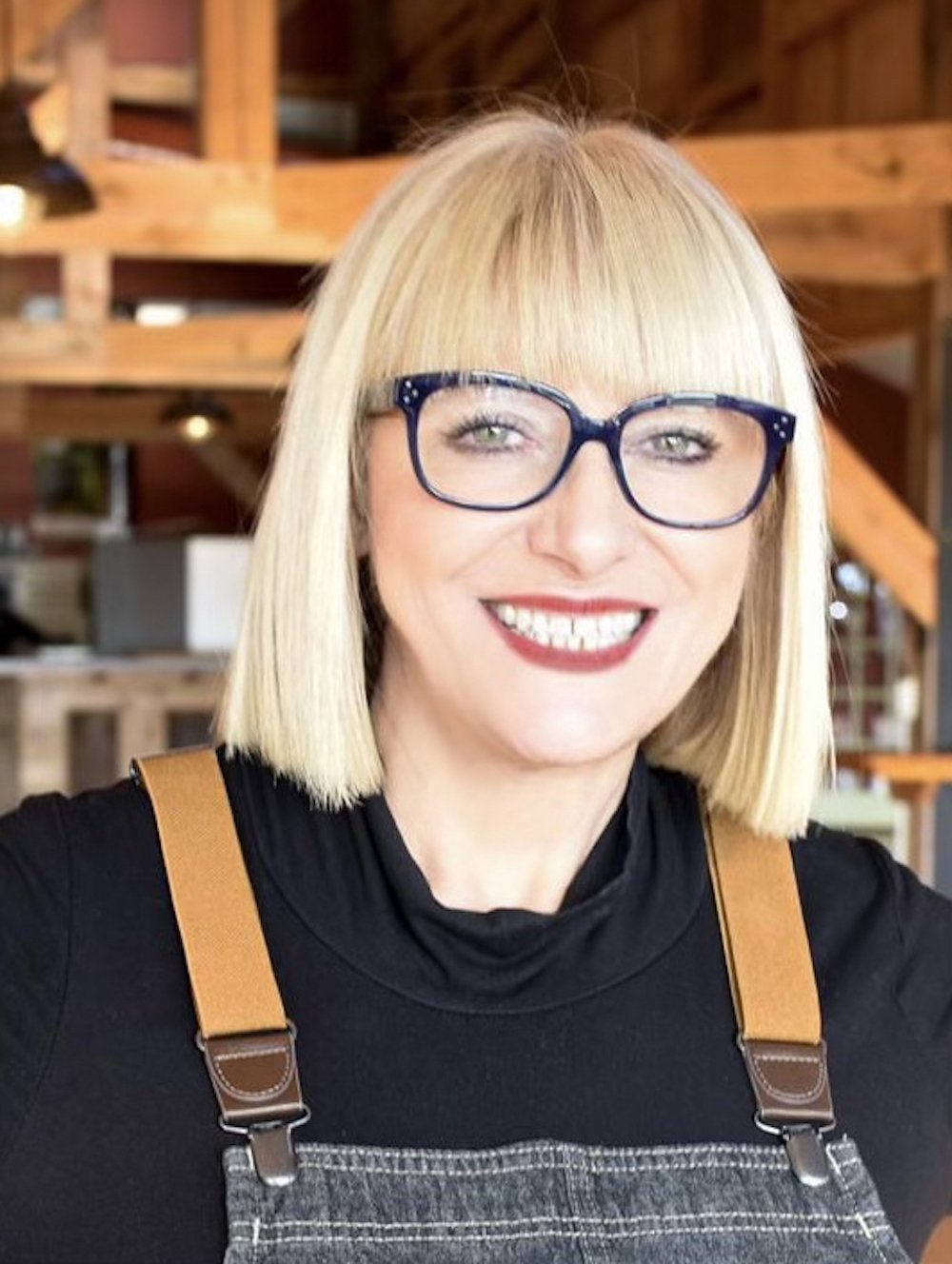5 Top Takeaways from Les Dames d' Escoffier New York Olive Oil Deep Dive
On May 30th, 2023, olive oil industry leaders from around the world met via Zoom to discuss what it takes to bring the ancient business of olive oil into modern times. The panelists included Lori Jean Levy, CEO of My Global Table LLC, Chef Maria Loi of Loi Food Products, Marie-Charlotte Piro, Founder and CEO of Olio Piro LLC, Maria Reyes, Specialty and Natural Foods Guru, and Cristina Stribacu, Founder of LIÁ Premium Olive Oil Company.
Alexis Kerner
The five women talked about the journey of getting a specialty product into the market, the importance of sourcing quality oil, the necessity of consumer education, building a brand to get in front of buyers, strategic social media, and standing out while supporting the competition. The second half of the event was a blind educational tasting of olive oil led by Alexis Kerner of the Olive Oil Workshop. The tasting explored how to tell good from bad, what quality really means, how to navigate the labels, the meaning of awards, and how to communicate this experience to your consumer.
Here are five takeaways from the conversation.
Olive Oil Can Help Save the World
Cristina Stribacu
Cristina Stribacu calls herself an “olive oil activist.” She explains, “I am driven by the desire to save and promote the cultural heritage of olive oil.” Olive oil is more than just a product on a shelf; it’s deeply connected with history, identity, and culture of many places in the world. This applies to her home in Southern Greece, but also many regions throughout the Mediterranean. “Encouraging and inspiring young entrepreneurs is vital for the sustainability of our industry,” Stribacu says.
A deep understanding of the land and the climate make olive oil a truly sustainable endeavor. “It’s not just about the production of olive oil, but about protecting valuable ecosystems,” explains Stribacu. Olive trees contribute to biodiversity and the preservation of our planet, and support farmers and rural communities.
Transparency Is Essential
Lori Jean Levy
For her work at My Global Table, Levy only sources oil where she spends time at the farm, seeing the producers’ methods firsthand for best practices, sustainability, and biodiversity. “What matters the most is that you communicate to your end user exactly what’s in the bottle,” Levy says. “It’s really important to go to qualified sources where you understand how things are kept and maintained, what year the harvest is, and everything is being treated well.” There are quality bottles of extra virgin olive oil across price points, from blends to super premium picks. Just like wine, there are excellent choices for different budgets, styles, and occasions. If you know and trust a source, that’s invaluable.
Wine and Olive Oil Are a Lot Alike
Maria Reyes
“There is really not a lot of difference between wine and olive oil,” says Maria Reyes. “Wine is made in different regions in different parts of the world, with different grapes, and different prices,” just like olive oil. (Yes, we know wine has alcohol, and olive oil is a lot better for your health.)
Just like wine, consumers are more educated and knowledgeable than ever. They want to know the real story behind the product—not just a pretty label (although we love a pretty label) but where the item comes from, how it was made and by whom, and what they’re paying for. Like wine, at the end of the day, quality olive oil delivers “pure pleasure,” says Reyes.
Expect to Pay for Quality
Marie-Charlotte Piro
“We can’t do it by ourselves,” says Piro, when it comes to making and selling high-end olive oil. “In this market in the US that’s so competitive, with olive oil brands everywhere, the only way we found to be noticed is to bring high quality, premium extra virgin olive oil together.” Prio thinks of the most exceptional olive oil as top shelf. Part of her work is educating her consumer that it’s ok to pay $50 for a bottle of olive oil if and when it’s a truly fresh, selective, and delicious product. “The more of us up there, the more comfortable customers and retails will be,” she says.
“Back in the 80s, who would have thought that Americans would spend so much money on wine?” asked Piro. “Now, everyone’s a wine connoisseur.” She foresees the journey for olive oil on a similar trajectory. There’s the poetry and passion for a Mediterranean lifestyle that wine and olive oil embody, and there’s also the straightforward quality of the product. It’s a luxury product with giant potential.
Olive Oil Really Is Magical
Chef Maria Loi
“If you cut my veins, olive oil will come out,” says Loi. Loi grew up on an olive grove in Greece, and her love for olive oil runs deep. It’s a thread that connects her love for food, her country, her family, and her culture. She’s worked with professors at Harvard to explore the health benefits of the polyphenols and oleocanthal, and the potential of olive oil is even bigger than we understand.
“I have to thank my ancestors who opened diners and used olive oil in the Greek salad,” Loi says. “It’s huge. Once you have it, you don’t forget.”






